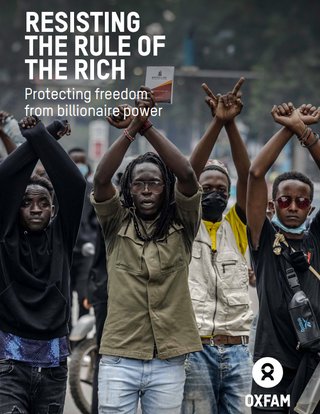Diplomats Call UN Back to Founding Principles – C-Fam

Report on UN Event: A Call to Realign Multilateral Action with Core Sustainable Development Goal Principles
Introduction: Reassessing UN Priorities for the 2030 Agenda
At a United Nations event commemorating the organization’s 80th anniversary, diplomats and policy experts issued a call for the UN system to return to its foundational principles. Speakers argued that a renewed focus on national sovereignty, human dignity, and respectful dialogue is essential for building the trust and cooperation required to achieve the Sustainable Development Goals (SDGs). Concerns were raised that ideological polarization is undermining progress on the 2030 Agenda, particularly in relation to health, gender, and institutional partnerships.
Key Concerns Regarding Current Approaches to SDG Implementation
Panelists identified several areas where current UN strategies are perceived as diverging from core development objectives and creating barriers to achieving the SDGs.
- Erosion of Partnership and Trust (SDG 17 & SDG 16): The Ambassador of Burundi, Zéphyrin Maniratanga, warned that “ideological polarization…undermines trust, cooperation and peace,” which are foundational to SDG 16 (Peace, Justice and Strong Institutions) and SDG 17 (Partnerships for the Goals). He stressed that human dignity must be the “moral compass” for all multilateral action to ensure an inclusive approach to development.
- Challenges to National Sovereignty and Development Priorities (SDG 10): The Deputy Permanent Representative of Djibouti, Youssouf Aden Moussa, expressed concern over an “aversion to fundamental principles such as sovereignty [and the] right to development.” This challenges the principle of nationally-owned development strategies, a key component for reducing inequalities within and among countries (SDG 10).
- Misalignment in Health and Well-being Priorities (SDG 3): David Mulroney, former Canadian Ambassador, critiqued a shift in international assistance away from maternal, newborn, and child health (Targets 3.1 and 3.2) towards sexual and reproductive health (SRH). He described this as a “sad decoupling of babies…from mothers,” arguing it diverts focus from a critical component of SDG 3.
- Imposition of Homogenous Policies on Gender (SDG 5): Susan Yoshihara of the American Council on Women Peace and Security cautioned against the “expertization” of UN policy. She argued this has led to the imposition of “homogenous, expert-generated” policies like gender ideology, which may not address the measured, real-world needs of women, thereby hindering authentic progress on SDG 5 (Gender Equality).
- Distraction from Core Development Objectives: Douglas Sylva of C-Fam noted that insisting on controversial social policies “distracts the world’s community from pursuing the crucial objectives for which there is no debate,” such as SDG 1 (No Poverty) and SDG 4 (Quality Education).
Recommendations for Advancing the 2030 Agenda
The speakers proposed a course correction for the UN system to more effectively pursue global development objectives.
- Return to Foundational Principles: The UN and Member States should re-commit to the principle of inherent human dignity, which precedes any institution and is central to the SDG pledge to “leave no one behind.”
- Respect National Context and Sovereignty: To strengthen partnerships for the goals (SDG 17), the UN system must respect the right of Member States to determine their own development paths and domestic policies, avoiding the imposition of values not universally agreed upon.
- Promote Genuine Dialogue over Ideology: In line with SDG 16’s call for inclusive societies, progressive states were urged to “drop their megaphones and start listening again” to foster a climate of mutual respect and pragmatic cooperation.
- Refocus on Consensus-Based Goals: Multilateral efforts should prioritize core, non-controversial development objectives where global consensus exists, thereby rebuilding trust and ensuring resources are directed toward achieving fundamental goals like SDG 1 (No Poverty), SDG 2 (Zero Hunger), and SDG 3 (Good Health and Well-being).
SDGs Addressed or Connected to the Article
- SDG 3: Good Health and Well-being: The article directly discusses international assistance programs related to health, specifically contrasting “maternal, newborn, and child health” with “sexual and reproductive health (SRH)” and abortion. This places the debate squarely within the scope of SDG 3.
- SDG 5: Gender Equality: The discussion on the “real needs of women” versus the imposition of “homogenous, expert-generated” policies like “gender ideology” and the focus on abortion as a women’s issue connects the article’s themes to SDG 5.
- SDG 16: Peace, Justice and Strong Institutions: The core of the article is a critique of the United Nations system. It calls for a return to principles like respect for national sovereignty and dialogue, and it criticizes UN institutions for being driven by “international bureaucracies,” imposing controversial values, and undermining trust. This directly relates to the goal of building effective and accountable institutions.
- SDG 17: Partnerships for the Goals: The article addresses the nature of multilateralism and global cooperation. It argues that the current approach of the UN “undermines trust, cooperation and peace” and “creates a climate of distrust,” which is a direct commentary on the functioning of the global partnership for sustainable development.
Specific SDG Targets Identified
SDG 3: Good Health and Well-being
- Target 3.1 (Reduce maternal mortality) & Target 3.2 (End preventable deaths of newborns and children): These targets are relevant because the article laments the shift in Canada’s international assistance programs *away* from “maternal, newborn, and child health.” This implies that these areas were previously, and should be, a priority.
- Target 3.7 (Ensure universal access to sexual and reproductive health-care services): This target is central to the article’s critique. David Mulroney criticizes the shift of international aid *towards* “sexual and reproductive health (SRH)” and the “elevation of abortion to the status of ‘healthcare’.” The article presents a viewpoint that the implementation of this target has become controversial and ideologically driven.
SDG 5: Gender Equality
- Target 5.6 (Ensure universal access to sexual and reproductive health and reproductive rights): Similar to Target 3.7, this target is addressed through criticism. The article argues that policies related to this target, such as the legalization of abortion, are being imposed on member states as if they were universal values, without being explicitly mentioned in conventions. Susan Yoshihara’s comments suggest that the focus on “expert-generated” policies like “gender ideology” detracts from measuring the “real needs of women.”
SDG 16: Peace, Justice and Strong Institutions
- Target 16.6 (Develop effective, accountable and transparent institutions at all levels): The article critiques the UN system for a lack of accountability to its founding principles and member states. Stefano Gennarini claims that “international bureaucracies” use the UN as an “instrument of global control,” and Douglas Sylva states the UN has “squandered its legitimacy by intervening in domestic affairs.”
- Target 16.7 (Ensure responsive, inclusive, participatory and representative decision-making at all levels): The article implies that UN decision-making is not representative. It highlights concerns about the imposition of “progressive cultural values” and “homogenous, expert-generated” policies that disregard national sovereignty and diverse cultural contexts, thereby undermining inclusive and participatory processes.
SDG 17: Partnerships for the Goals
- Target 17.16 (Enhance the global partnership for sustainable development): The article directly addresses the health of this global partnership. The Ambassador of Burundi warns against “ideological polarization that undermines trust, cooperation and peace.” Douglas Sylva explains that insisting on controversial norms “creates a climate of distrust and distracts the world’s community from pursuing the crucial objectives for which there is no debate,” suggesting the partnership is being damaged.
Indicators Mentioned or Implied
SDG 3: Good Health and Well-being
- Implied Indicator: The allocation of international assistance funds for health. The article uses the example of Canada’s international aid shifting its focus from “maternal, newborn, and child health” to “sexual and reproductive health (SRH)” as an indicator of a negative policy trend.
SDG 5: Gender Equality
- Implied Indicator: The nature and focus of policies aimed at women. The article implies that a focus on “homogenous, expert-generated” policies and “gender ideology” is a poor indicator of progress, suggesting that a better measure would be policies that address the “real needs of women” as determined through non-ideological assessment.
SDG 16: Peace, Justice and Strong Institutions
- Implied Indicator: The degree of respect for national sovereignty in UN actions and resolutions. The article suggests that the UN’s legitimacy is eroding because it is “intervening in domestic affairs,” which serves as a negative indicator for institutional effectiveness.
- Implied Indicator: The level of consensus versus polarization in multilateral dialogue. The call to “avoid ideological polarization” and the observation of a “climate of distrust” are presented as indicators of institutional and diplomatic failure.
Summary Table of SDGs, Targets, and Indicators
| SDGs | Targets | Indicators (as implied in the article) |
|---|---|---|
| SDG 3: Good Health and Well-being |
|
The focus and funding allocation of international assistance programs (e.g., the shift from maternal/child health to SRH/abortion). |
| SDG 5: Gender Equality |
|
The degree to which policies address the “real needs of women” versus imposing “homogenous, expert-generated” ideologies. |
| SDG 16: Peace, Justice and Strong Institutions |
|
The level of respect for national sovereignty in UN actions; The degree of ideological polarization and distrust within the UN system. |
| SDG 17: Partnerships for the Goals |
|
The existence of a “climate of distrust” that undermines cooperation and distracts from universally agreed-upon objectives. |
Source: c-fam.org
What is Your Reaction?
 Like
0
Like
0
 Dislike
0
Dislike
0
 Love
0
Love
0
 Funny
0
Funny
0
 Angry
0
Angry
0
 Sad
0
Sad
0
 Wow
0
Wow
0


















































































